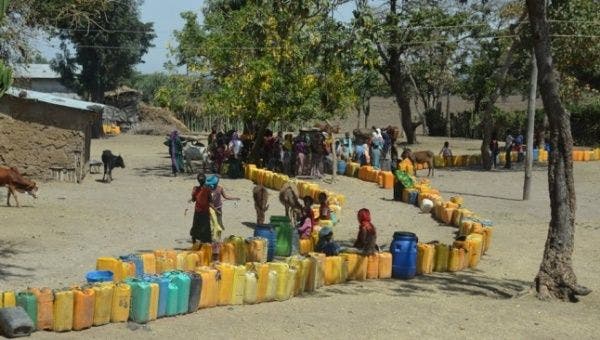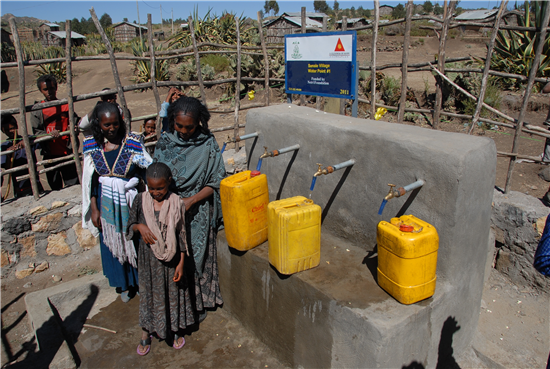
The Eritrean and Ethiopian “law enforcement operation” which occupied Tigray resulted in the destruction of 90% of community water resources. Tigray is an arid land with very few ponds, lakes, or rivers. Much of the water supply was derived from government maintained wells. There is only appreciable rainfall during the summer months. Adult Tigrayans living a hard rural farming life which makes up 90% of a 7 million population generally need at least 2.5 liters of potable water to drink.

Water is essential for life. Death can occur if there is no water intake in just days. Water borne disease can cause febrile illness, diarrhea, and inability to carry out even the necessary labors of daily life. Without antibiotics or intravenous fluids to treat these conditions normally treatable disease becomes fatal potentially for thousands of people as always been seen in the past. The limited water intake of Tigrayans had already been documented to contribute to high rates of kidney stones and kidney disease which now without medical treatment become fatal. Just about any medical condition is made worse by lack of water. Pregnancy and child development become compromised by the lack of proper intake and disease.
Before the onset of the Ethiopian Tigray conflict in November 2020 most of the urban areas had water plants often with their own generators which provided water several days a week. Many of the modest homes had water storage at a low height that allowed low flow by gravity to dispense the stored water. Sometimes they had an electric pump to push water up to higher storage. The loss of electricity rendered city water supplies inoperative. In the rural countryside traditionally women would carry 5 gallon containers on foot often traveling for hours to government installed manual pump equipped wells. Many women searching for water became targets of violence and violation by Eritrean and Ethiopian soldiers.
In the urban areas the community now receives water delivered to the neighborhoods, kebele, by horse drawn tank carts which collect water from wells or natural resources. This is not purified in any way and may contain bacterial, parasitic, or chemical contaminates. While I was in Mekelle during the occupation we would try to filter the water by pouring it through blankets and then boil it. As there was no electricity we had to search for fire wood which was in short supply. The timing of the fire was key because it was used to keep warm during the often chilly evening hours and used to cook food as well as to kill pathogens in the water.

